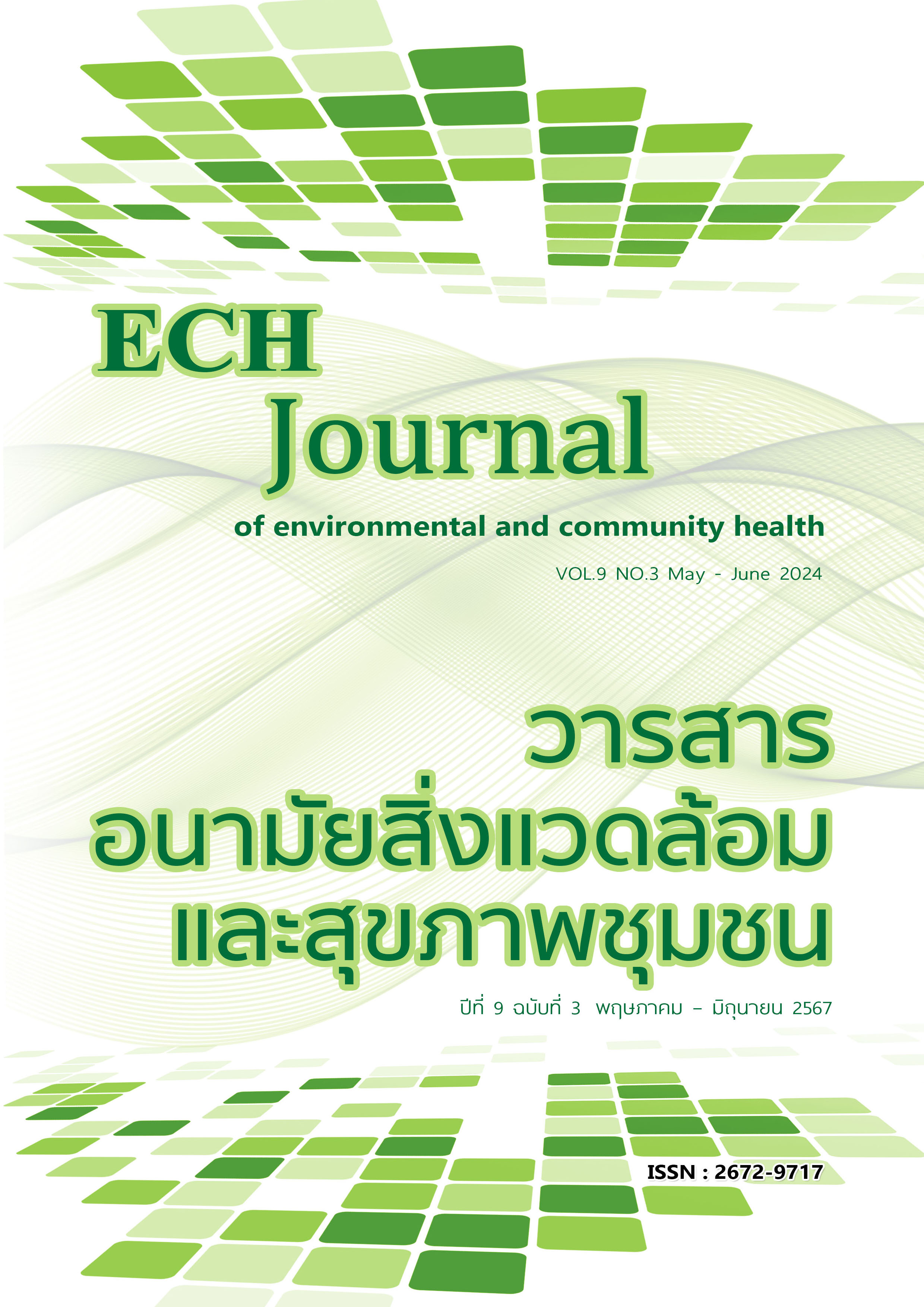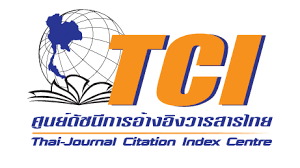The effect of an empowerment, health literacy and health behavior enhancement program among hypertensive patients at Khamtakla Hospital,
Keywords:
Empowerment Program, Health Literacy, HypertensionAbstract
This research was a quasi-experimental study with a one-group pretest-posttest design. The objective was to study the effects of an empowerment program on health literacy and health behaviors among hypertensive patients at Khamtakla Hospital, Sakon Nakhon Province. The sample consisted of 30 patients diagnosed with essential hypertension for at least one year, selected by purposive sampling. Data were collected using a general information questionnaire, a health literacy assessment form, and a health behavior assessment form. The experimental tool was the empowerment program. Data were analyzed using descriptive statistics and paired t-tests for pretest-posttest comparisons.
The results showed that after the experiment, the mean health literacy score was significantly higher than before the experiment (p < 0.05), increasing from 47.67 (S.D. = 10.57) to 61.93 (S.D. = 4.79). The mean health behavior score was also significantly higher after the experiment (p < 0.05), increasing from 41.07 (S.D. = 9.22) to 57.87 (S.D. = 4.66). The mean systolic blood pressure (SBP) and diastolic blood pressure (DBP) of the patients significantly decreased (p < 0.05). The mean SBP decreased from 149.37 mmHg (S.D. = 8.16) before the experiment to 123.87 mmHg (S.D. = 13.99) after the experiment, and the mean DBP decreased from 81.83 mmHg (S.D. = 10.81) to 73.10 mmHg (S.D. = 10.45)
References
World Health Organization. Hypertension. Available from March 16, 2023 https://www.who.int/news-room/fa
กระทรวงสาธารณสุข. Health Data Center. สืบค้น ตุลาคม 30, 2566 จาก https://hdcservice.moph.go.th/hdc/main/index.php
วรดา ทองสุก. ผลของโปรแกรมการเสริมพลังอำนาจต่อพฤติกรรมสุขภาพ ดัชนีมวลกาย และระดับความดันโลหิตในผู้ป่วยโรคความดันโลหิตสูงที่ควบคุมไม่ได้. วิทยานิพนธ์ปริญญาพยาบาลศาสตรมหาบัณฑิต มหาวิทยาลัยนเรศวร; 2562.
Miller JF. Coping with Chronic illness: Overcoming Powerlessness. 2nd ed. Philadelphia: F.A. Davis; 1992.
Gibson CH. The process of empowerment in mothers of chronically ill children. J Adv Nurs. 1995;21(6):1201-10.
Pilot DF, Hungler BP. Nursing research: Principles and methods. 5th ed. Philadelphia: Lippincott; 1995.
กองสุขศึกษา. การเสริมสร้างและประเมินความรอบรู้ด้านสุขภาพและพฤติกรรมสุขภาพ กลุ่มเด็กวัยเรียนและวัยทำงาน. สืบค้น พฤศจิกายน 17, 2566 จาก http://www.hed.go.th/linkHed/482
Bloom BS. Handbook on Formative and Summative Evaluation of Study of Learning. New York: McGraw-Hill; 1971.
Okazaki K. ["Throw your hammer!" The essence of patient empowerment in diabetes]. Yakugaku zasshi. 2015;135(3):351-5. doi: 10.1248/yakushi.14-00207-1.10. Snoek F, Skinner T. Psychology in Diabetes Care. 2000. doi: 10.1002/0470846569.
Bosworth HB, Olsen MK, Grubber JM, Neary AM, Orr MM, Powers BJ, et al. Two self-management interventions to improve hypertension control: a randomized trial. Ann Intern Med. 2009;151(10):687-95. doi: 10.7326/0003-4819-151-10-200911170-00148.
จิรวรรณ ไชยรัตน์, และคนอื่นๆ. ผลของโปรแกรมการเสริมสร้างพลังอำนาจเพื่อปรับเปลี่ยนพฤติกรรมสุขภาพ ผู้ป่วยโรคความดันโลหิตสูง ในเขตรับผิดชอบของศูนย์แพทย์ชุมชนคูหาสวรรค์ อำเภอเมือง จังหวัดพัทลุง. 2565;5(2):65-73.
เพ็ญศรี รอดพรม, และคนอื่นๆ. ผลของโปรแกรมการเสริมพลังอำนาจในผู้ป่วยเบาหวานชนิดที่ 2 ที่ควบคุมระดับน้ำตาลไม่ได้. 2565;9(5):300-12.





